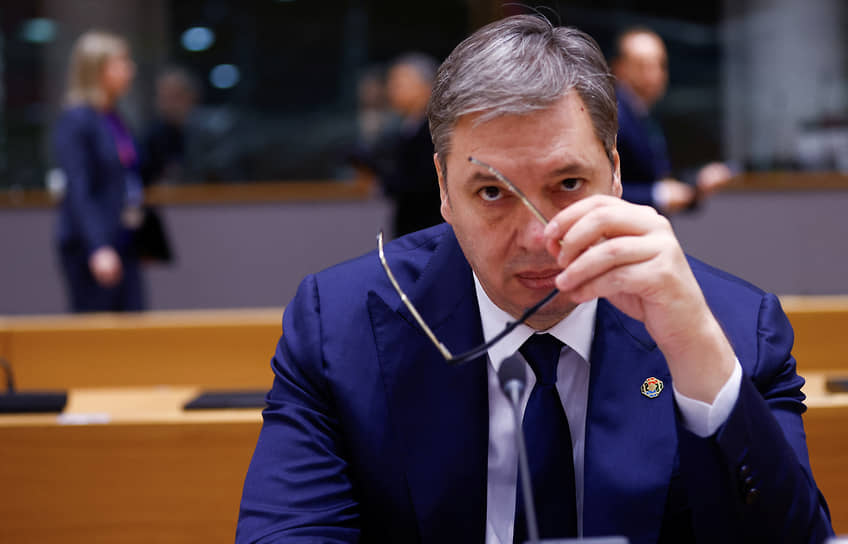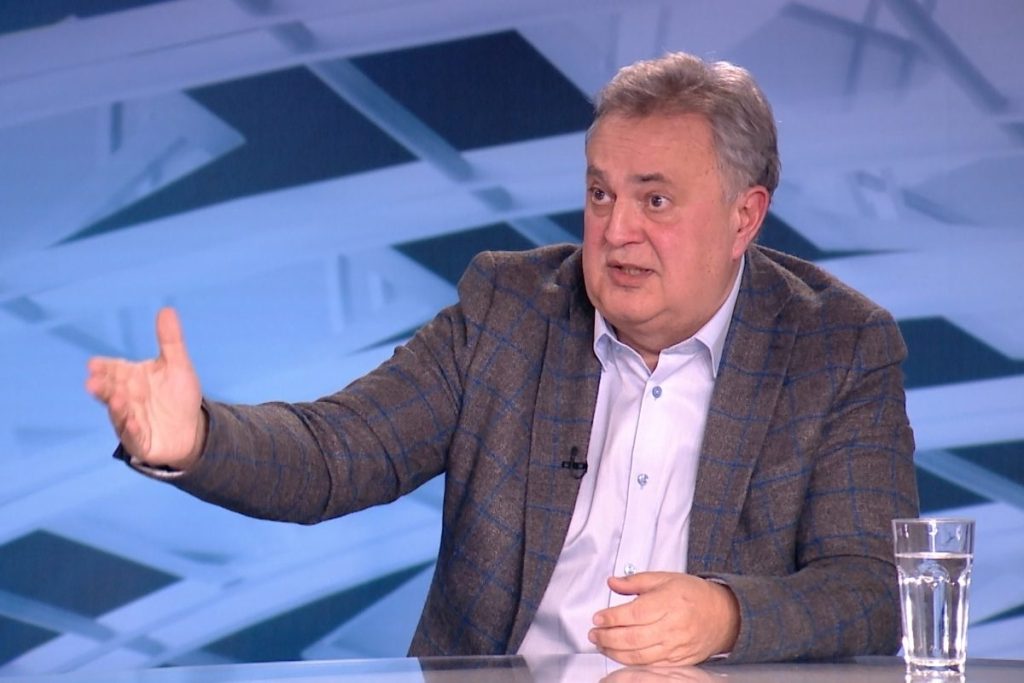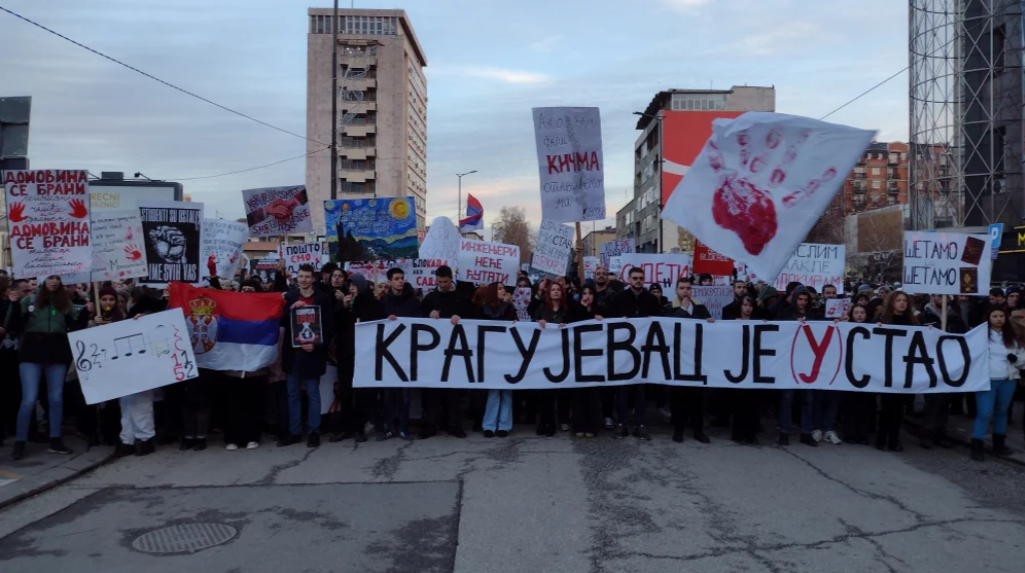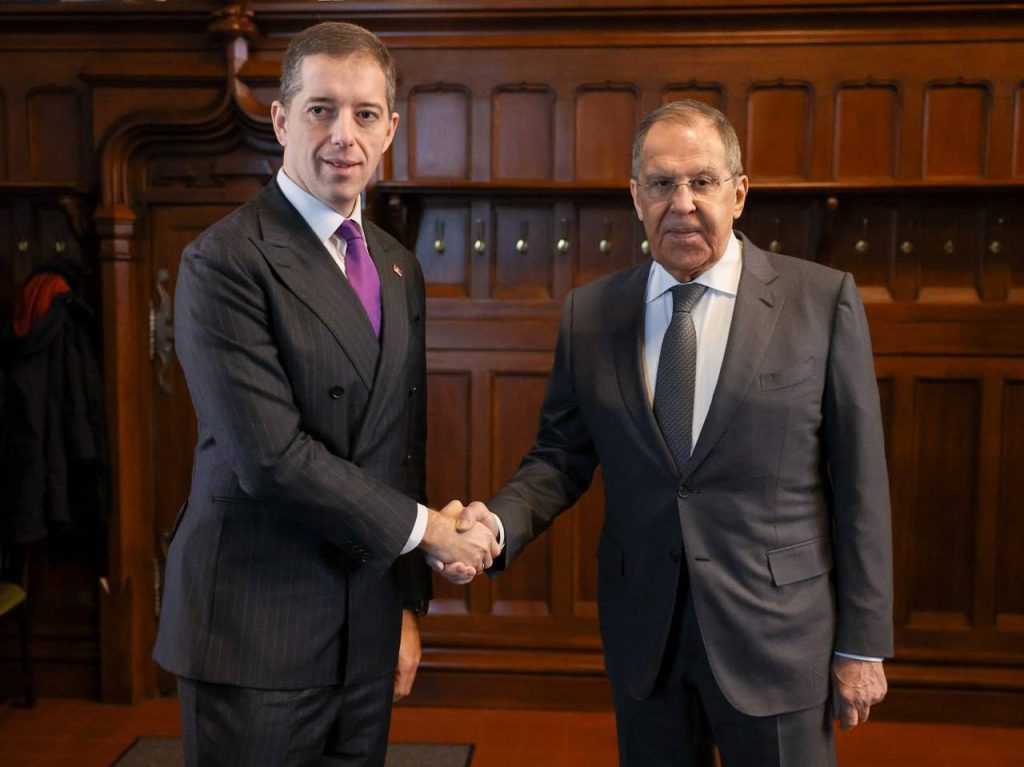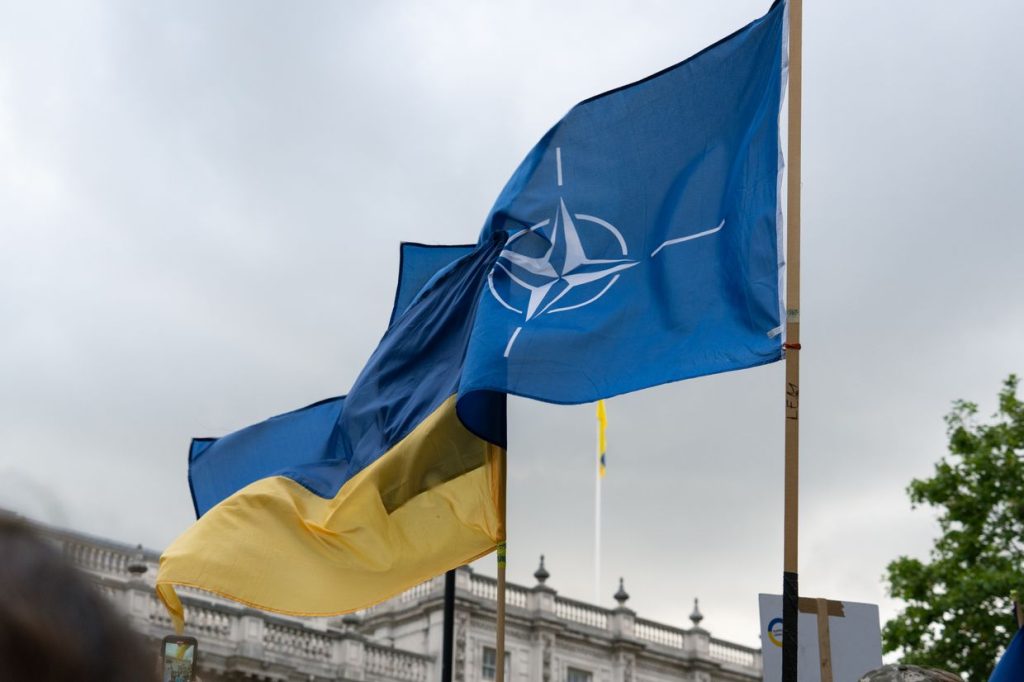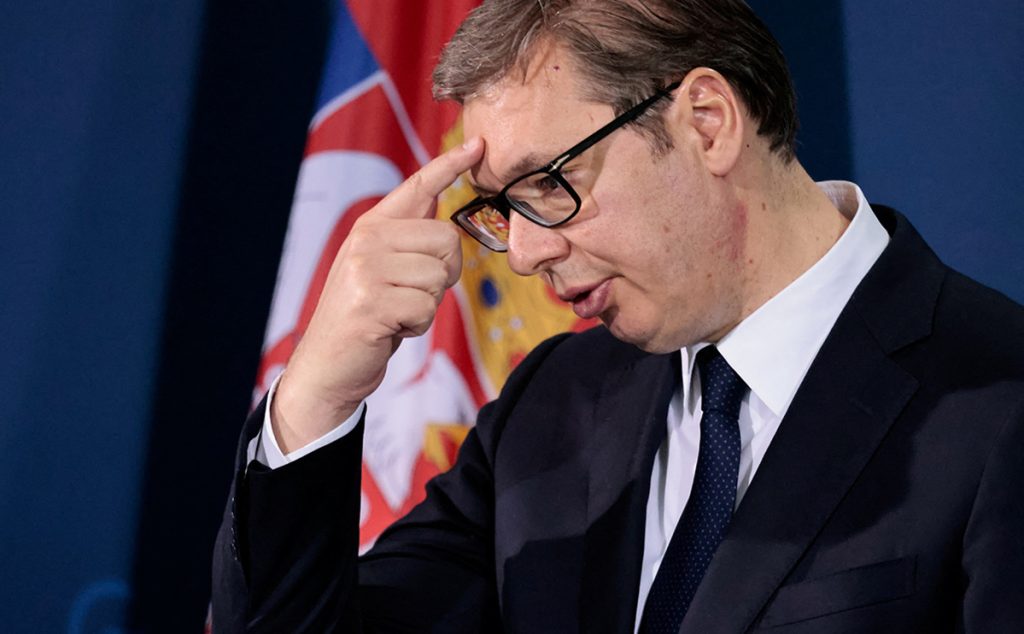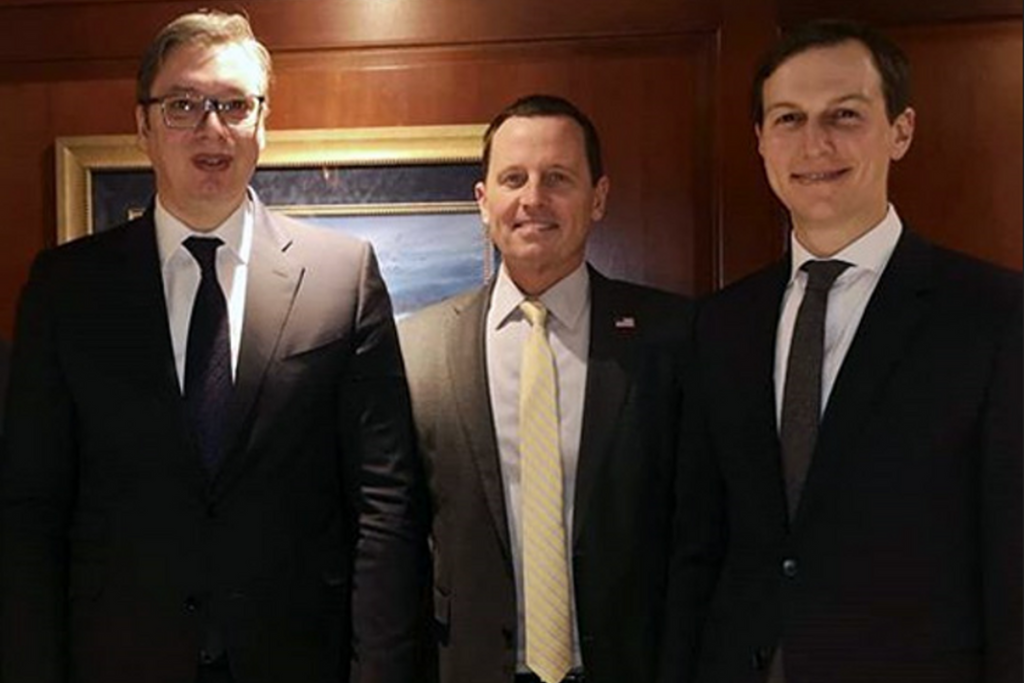Written By: Igor Pshenichnikov
Official Belgrade is demonstrating an increasingly open inclination towards the United States and the West. The scandal over Serbian President Aleksandar Vucic's public refusal to accept Russian President Vladimir Putin's invitation to the BRICS Summit in Kazan has continued.
Serbian media under the control of President Vucic launched an open anti-Russian information campaign. Its goal is to change the opinion of Serbs from Russophilia to Russophobia and to draw Serbia into the EU and NATO.
The scandal over Serbian President Aleksandar Vucic's public refusal to accept Russian President Vladimir Putin's invitation to the BRICS Summit in Kazan has continued. Serbian media under the control of President Vucic launched an open anti-Russian information campaign. Its goal is to change the consciousness of Serbs from Russophilia to Russophobia and to draw Serbia into the EU and NATO.
The great power of media
By reading the Serbian press, you come to the unequivocal conclusion that the official leadership of Serbia has set the course for the separation of Serbian society from Russia, which has seen Russia for centuries as its eternal friend and ally.
The core of the current campaign is the claim that Russia under President Yeltsin armed Croatia in the war against the Serbs of Serbian Krajina, who fought for independence from Croatia.
In the 1990s, the former Yugoslavia was a field of numerous military conflicts on ethnic and religious grounds, which the West provoked with the aim of separating a prosperous country, such as mosaics, into many separate "independent" states.
The Serbian media (especially "the Republic") published articles that Moscow was 1994. allegedly, Croatia sold the S-300 air defense system, which the then president of Croatia Franjo Tudjman wanted to use to attack Belgrade if Serbia decided to help the Serbs in the Serbian Krajina.
The Croats allegedly started from the fact that the S-300, despite its defensive nature, could also be used as a means of destroying land targets at a distance of up to 120 km. Moreover, the Kremlin allegedly through Libyan leader Muammar Gaddafi sold the S-300 complex to Croatia to "hide traces" of the origin of the "product".
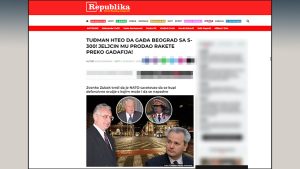
An ordinary arms dealer
Why and where does this information come from? For some reason, a supposedly long-standing legal battle has intensified in Croatia right now, in which a certain arms dealer Zvonko Zubak claims that "for Croatia he bought the S-300 missile system in Russia, because the president of Croatia Franjo Tudjman, and the chief of the main staff of the Croatian army Janko Bobetko intended to strike Belgrade.".
According to the Serbian and Croatian press, Zvonko Zubak "has been trying for two decades to recover нов 200 million from the Croatian government", which he allegedly spent on buying an S-300 in Moscow:
In Zagreb, it is estimated that the damages claim could bring him as much as a billion, including interest, if the court respects his lawsuit.
In the late 1980s Zubak reportedly co-owned the arms company Winsley Finance Limited, "which cooperated with NATO, which gave him contacts in this business".
The Republic extensively quotes Zvonko Zubak, who told Croatian media that after the Kremlin talks, Yeltsin allegedly decided to sell the S-300 to Zagreb "through Libya" in order for "Russia to circumvent the UN sanctions on the sale of weapons to the former republics of the SFRY.”
Zubak reports that, to finish the job, he then visited Libyan leader Muammar Gaddafi, who "gave the end user certificate (Libya), according to which the S-300 complex with 40 missiles was purchased from the Russians .”
According to Zvonko Zubak, "the deal is stuck somewhere, so Croatia did not receive the S-300 complex in full form, it was only 70 percent complete, and the missiles were not delivered to Croatia at all".
After this, Zagreb lost interest in the S-300, but I still received guarantees that I would be paid,
"an offended arms dealer who allegedly did not receive money from the Croatian authorities complains.
It is interesting that Zubak himself says that "in Moscow they claim that there was no deal and that it is all fiction".
What does all this mean?
It all resembles an old, almost humorous detective story, in which the main character – the arms dealer Zvonko Zubak, who was allegedly "cheated"by the Croatian authorities. But the main reason is something else.
According to a report by the Serbian media authorities, Moscow in the 90s is on the 20th. for centuries, the Serbs were treated absolutely unprincipled, selling weapons to Croats who intended to use them against the Serbs.
In parallel, Serbian publications Informer and Ало! they write about President Vucic's "Russophilia", allegedly thanks to which "Russian media spread their propaganda in the Balkans, since Vucic did not ban Russian media in Serbia". And from this, they say, President Vucic and the Government of Serbia suffer under the blows of the West.

The game has two faces. Vucic is "good and noble", "he takes care of the Russians", and the Russians are "corrupted" because they sold weapons to Croats who wanted to bomb Belgrade. According to Serbian sources, at the same time, an entire army of bots on social networks is participating in the spread of this anti-Russian propaganda in Serbia based on the thesis of "selling the S-300".
Final goal
The purpose of this false information campaign is to provoke anti-Russian feelings in Serbian society and, as our Serbian friends note in private conversations, "to put Serbian public opinion in an anti-Russian and pro-NATO mood".
Moreover, it is obvious that this information campaign is of an international character, not only Serbian media are involved in it. This is clearly organized by the West, and Vucic and the media he controls are only following the instructions of the Washington Regional Committee. This whole S-300 detective story should blacken the Russians in the eyes of the Serbs and thus prove that in the 1990s, "NATO planes did not bomb Serbia, but hit it with flowers".
The final expected in the West is Serbia's accession to the EU and NATO, which is why for centuries the pro-Russian population of Serbia should not protest.
And Serbia's formal accession to NATO can be achieved by a vote controlled by the power in the Assembly (Parliament), not by a national referendum, during which surprises undesirable to the West can occur. This is exactly how, through a controlled parliament, the relatively recent pro-Western authorities of neighboring and brotherly Serbian Montenegro enrolled this republic as a member of the North Atlantic alliance.
NATO, the end station
According to Serbian opposition media, Polish prime minister Donald Tusk will visit Belgrade from 23. to 24. October. It turned out to be the same "very important meeting" that caused Serbian President Aleksandar Vucic to reject Russian President Vladimir Putin's invitation to attend the BRICS summit 22-24.
As it is said, Vucic has asked Tusk to come to Serbia these days to say that he will not be able to go to Kazan.
we have our Serbian sources.
Serbian locomotive is rapidly gaining momentum. The next stop is the European Union with its anti-Russian sanctions. And then there's NATO. And that's It, Serbia has arrived. This is true only if the "driver" does not change.
Source: "Russkie unitožali serbov". The Russian Army (tsargrad.tv)
Translation from Russian: Center for geostrategic studies
9. October 2024.


